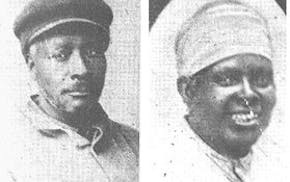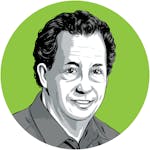More than 3,000 Vietnam War protesters at Mankato State College broke into three groups on May 9, 1972. One blocked the Main Street Bridge. Another shut down the North Star Bridge.
Tom Conroy, then 24, was in the front of the third and arguably the most brazen wave of anti-war demonstrators that day — sitting on Hwy. 169 and locking arms to block traffic and amplify the message that the Vietnam War had gone on far too long.
Just four years earlier, Conroy served as a U.S. Army medic, flying 359 so-called "dust-off" missions on helicopters that dropped into Southeast Asian battlefields where he evacuated 765 wounded soldiers. Now he was back home, fighting for peace.
"There were hundreds of us and we started the march on the upper campus and came down to block [Hwy.] 169," recalled Conroy, now 76. "We locked arms and the deputies approached. The deputy sheriff who pulled me away from the highway was a classmate of mine at Le Sueur High School, just trying to protect the peace."
With tear gas sprayed into protesters' faces, the crowd dispersed and highway traffic flowed again within 30 minutes.
Now retired and about to move from New Ulm to St. Peter to be closer to grandkids, Conroy talked recently about his five-year evolution from gung-ho soldier in 1967 to questioning dissenter by 1972. One of 68,000 Minnesotans who served in Vietnam, Conroy arrived in January 1968 just days before the North Vietnamese staged the Tet Offensive, a massive escalation in warfare that rocketed U.S. death tolls to more than 500 a week and heightened anti-war feelings back home.
"It wasn't one incident," he said about his evolution in thinking. "Things just gradually changed for me. Vietnam was a million-dollar experience — I wouldn't do it again for a million dollars."
The oldest of six siblings, Conroy was born in 1947 in southern Minnesota's Nicollet County when his father, Charlie, ran the supply shop at the Green Giant cannery in Le Sueur. Charlie had been wounded in Italy during World War II, taking shrapnel to his knee.
"As the oldest of five boys and a girl, I probably wanted to be a role model, hero, for them, I guess," he said. "Mostly I wanted to please Dad."
So when a high school buddy suggested they enlist together in 1967, as a "young punk who knew it all," he did it.
From Vietnam, Conroy wrote a letter to the editor of his hometown newspaper in 1968. "Almost invariably," he wrote, "the American soldier sweating in this small section of the Orient wants to associate the love of our country with justice … but continually we hear that we are … immoral and cruel."
He asked "why our country was losing its once firmly cemented friendship with fair play" and wondered if kids in history class 20 years down the road might "penetrate that fog and give us the answers."
Although he avoided the physical wounds of warfare, Conroy said, "A hell of a lot more guys came back in worse shape" — with injuries and mental health troubles haunting them.
Once back home, Conroy worked at the Minnesota Security Hospital and then edited the Le Sueur News-Herald in the 1980s until newspaper downsizing led to his ouster. His first wife and had just given birth to the first of their two children, and Conroy's father died in 1985.
"We only talked about our war experiences once, just after I came back from 'Nam," Conroy said. "No question my dad's war experiences and how they affected me and my family, coupled with my own time in 'Nam, changed me. And not always for the better."
Unemployed and grieving for his father, his family growing, Conroy thought: "Now what am I going to do for the rest of my life?" He landed a communications job that he loved with the Department of Natural Resources in New Ulm, until his retirement 12 years ago.
He served without regret, but looks back on the nation's divide during the Vietnam War era and the community's slow acceptance of those who served — and the 1,007 Minnesotans who died.
"I was never called a 'baby killer' like some [Vietnam veterans were], but you just kept to yourself and only talked to people who'd been there," he said.
In recent years, Conroy has joined a Last Man Club of fellow veterans, who play golf and believe their Vietnam service "has finally been accepted."
On Nov. 11, 2022, Conroy and his wife, Mary, went to George's Fine Steaks and Spirits in New Ulm to celebrate her birthday and Veterans Day. Conroy wore a Vietnam veteran cap and, while waiting for their table, met a younger veteran named Jason from Sleepy Eye who had fought in Afghanistan.
Later, when the Conroys went to pay their $100 check, he learned Jason had picked up their tab — "another signal of acceptance," he said.
Curt Brown's tales about Minnesota's history appear every other Sunday. Readers can send him ideas and suggestions at mnhistory@startribune.com. His latest book looks at 1918 Minnesota, when flu, war and fires converged: strib.mn/MN1918.
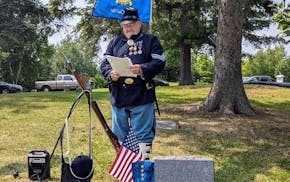
Civil War group honors the last Union veteran buried in each Minnesota county
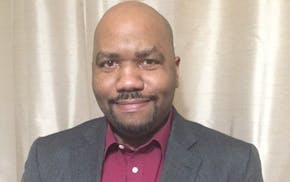
St. Cloud professor's book paints nuanced look at enslaved woman freed in Minneapolis
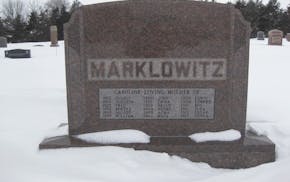
Paying overdue tribute to his grandmother, a Minnesota farmer recarves family history
